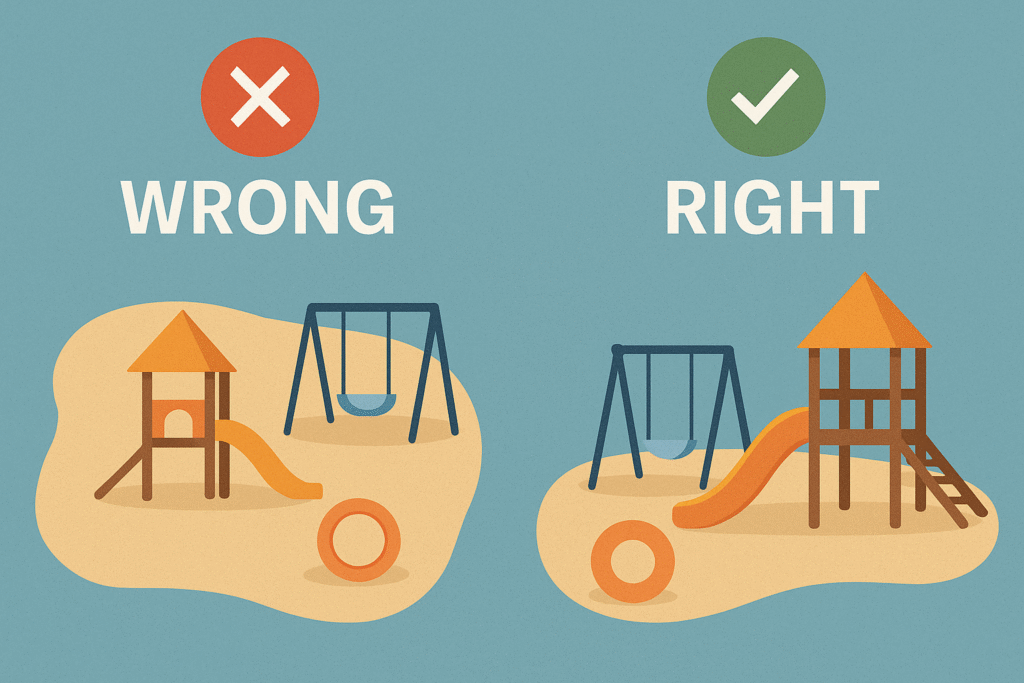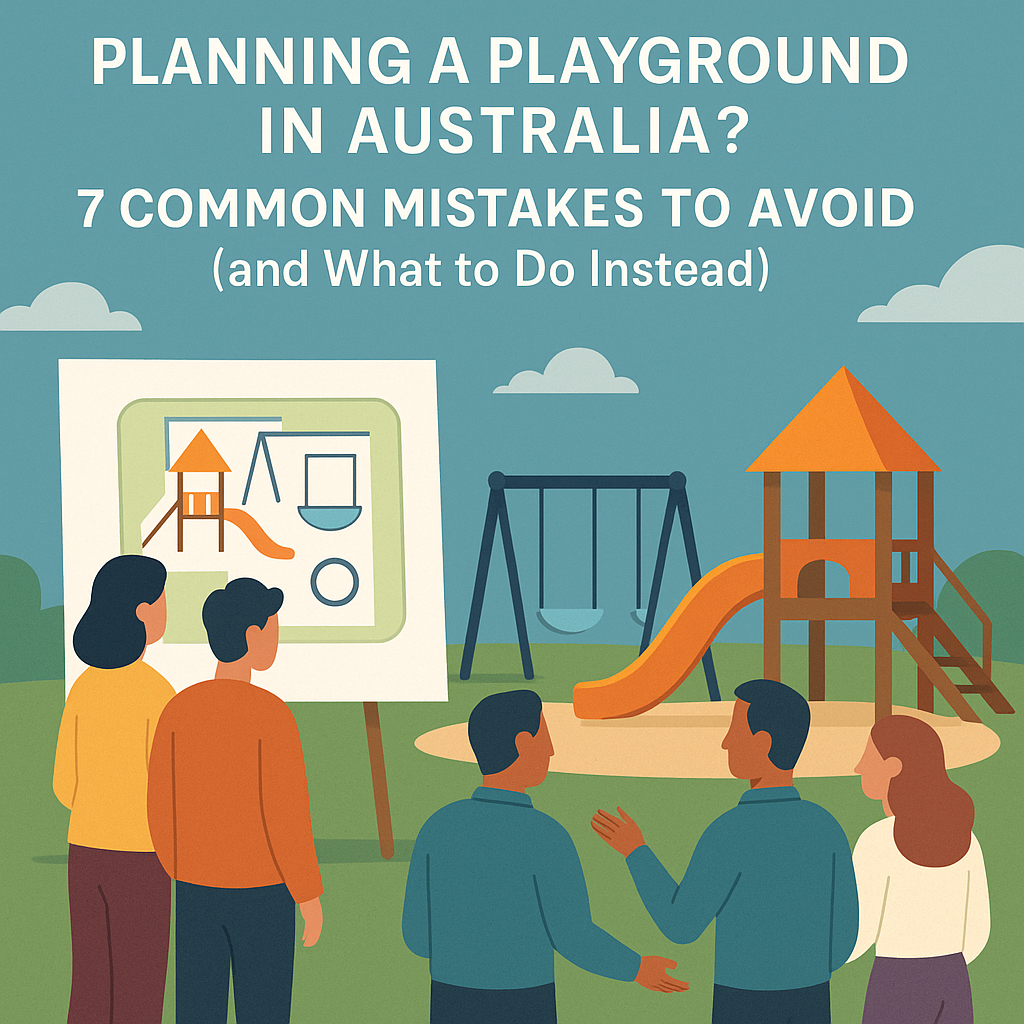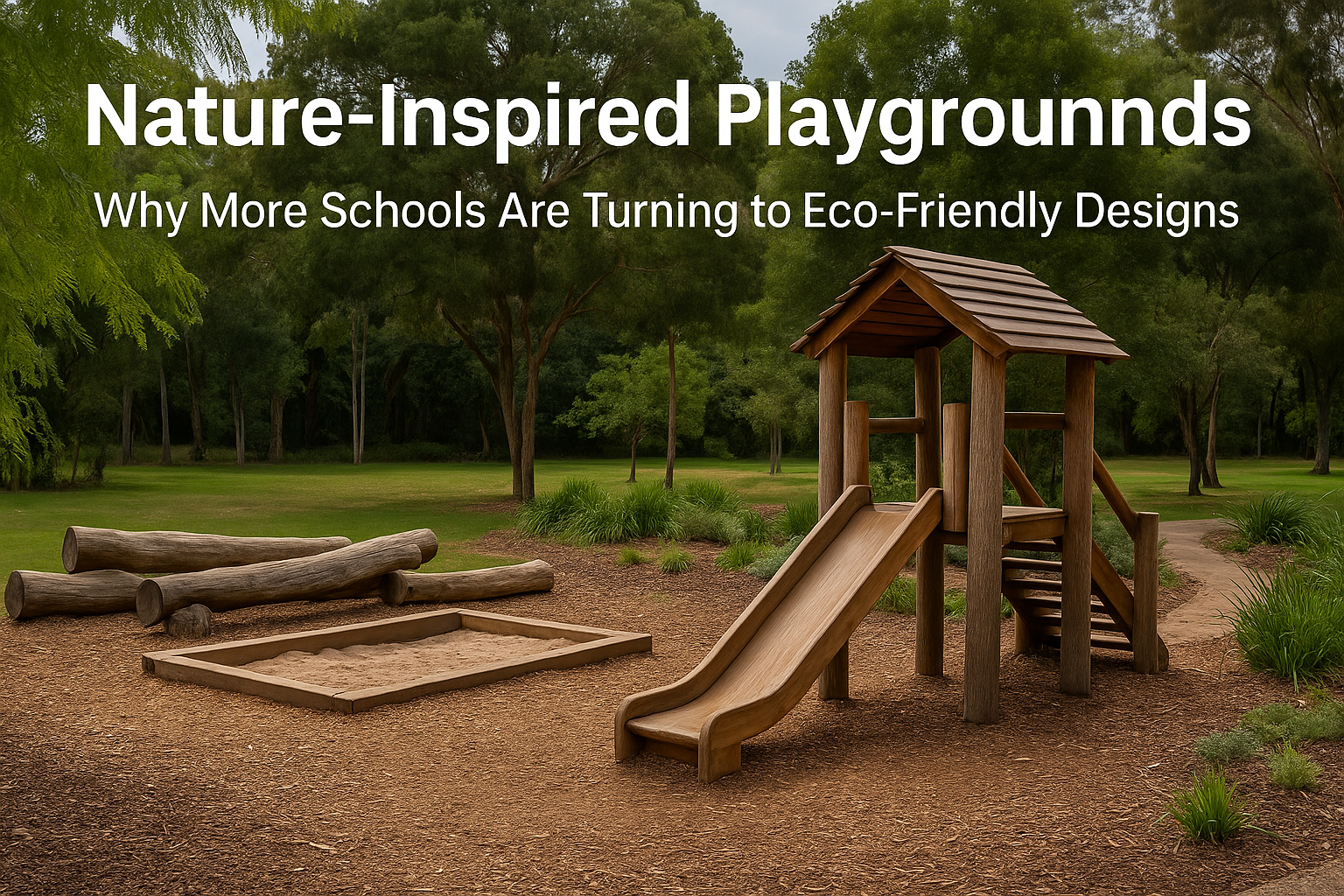Creating a new playground in Australia—whether for a school, council park, early learning centre or your own backyard—is a rewarding but complex task. While there’s plenty of inspiration online, the real challenge lies in avoiding costly, irreversible mistakes.
Here are 7 of the most common playground planning mistakes (and what to do instead), backed by real-world experience across Australian settings.
1. Choosing the Wrong Equipment for the Age Group
The Mistake:
One-size-fits-all solutions rarely work. Many buyers select playground sets that either exceed or under-stimulate the targeted age group.
The Fix:
Use the Australian playground safety guidelines and developmental benchmarks. For example:
- Ages 2–5 need low platforms, wide slides, and sensory panels.
- Ages 5–12 can handle climbing nets, rope bridges, and more height variation.
Read: How to Choose the Right Playground Equipment for Different Age Groups

Correct vs Incorrect Playground Layout Visual Guide2. Ignoring Shade and UV Protection
The Mistake:
Australia’s UV index is among the highest in the world. Yet many playgrounds are installed without permanent shade structures.
The Fix:
Consider installing shade sails, permanent steel roof shelters, or integrating natural shade using strategically planted trees.
You can browse our Playground Shade Structures for options that suit public parks or private gardens.
3. Poor Surface Planning (Or No Surfacing at All)
The Mistake:
Many clients focus on equipment and forget that surfacing is a critical safety and compliance component.
The Fix:
Use compliant surfacing such as:
- Wet pour rubber
- Engineered wood fibre
- Artificial turf
- Impact-absorbing tiles
These not only reduce fall risk but also enhance accessibility.
Read: Playground Safety Tips for Safe Play Areas in Australia
4. Overlooking Maintenance Requirements
The Mistake:
Some playgrounds look fantastic at installation but degrade rapidly due to low maintenance planning.
The Fix:
Plan for annual inspections, regular surface cleaning, and material-specific maintenance (especially timber!). How to Clean and Maintain Wooden Playground Equipment in Australia
If choosing timber, make sure it’s treated, sealed and periodically re-oiled in accordance with Australian outdoor exposure.
5. Not Considering Inclusive Design Principles
The Mistake:
Excluding children with physical or sensory needs isn’t always intentional—but it’s a real issue.
The Fix:
Integrate elements like:
- Ramped access
- Ground-level activities
- Sensory walls and panels
- Quiet zones for kids with sensory sensitivity
Read: Inclusive Playgrounds in Australia: What They Are & Why They Matter
6. Misjudging Space and Flow
The Mistake:
Playgrounds that are too cramped or poorly zoned can create bottlenecks, behavioural issues, or safety hazards.
The Fix:
Use a zone-based approach:
- Quiet play (sand, puzzles)
- Active play (slides, climbing frames)
- Group play (swings, obstacle courses)
Also, leave buffer zones between age groups and add seating zones for carers.
7. Blowing the Budget on the Wrong Priorities
The Mistake:
Some buyers invest heavily in one large structure and leave little room for add-ons, surfacing, or safety features.
The Fix:
Use a tiered approach:
- Prioritise safety surfacing
- Choose a mix of high-impact and budget-friendly play elements
- Leave room for future upgrades
Remember: a balanced playground with 5 elements used daily is better than a mega tower kids get bored of.
Check out our Commercial Playground designed with cost-efficiency and engagement in mind.
Final Thoughts: Design With Use (and Longevity) in Mind
Great playgrounds aren’t just safe and beautiful — they’re well used, season after season. By avoiding these 7 planning mistakes, you set yourself up for a play space that’s inclusive, safe, and truly loved.
If you’re ready to start, reach out to our team for help with compliant designs and high-quality installations.
Useful Resources & Next Reads
- Outdoor Playgrounds vs Indoor Playgrounds: Which Is Better?
- From Slides to Sandpits: How Playgrounds Develop 7 Core Skills in Children
- How to Design an Inclusive Playground for Schools
- How to Design an Educational Playground: 2025 Trends & Tips
Looking for help? Contact our team at playground-equipment.com.au/contact



